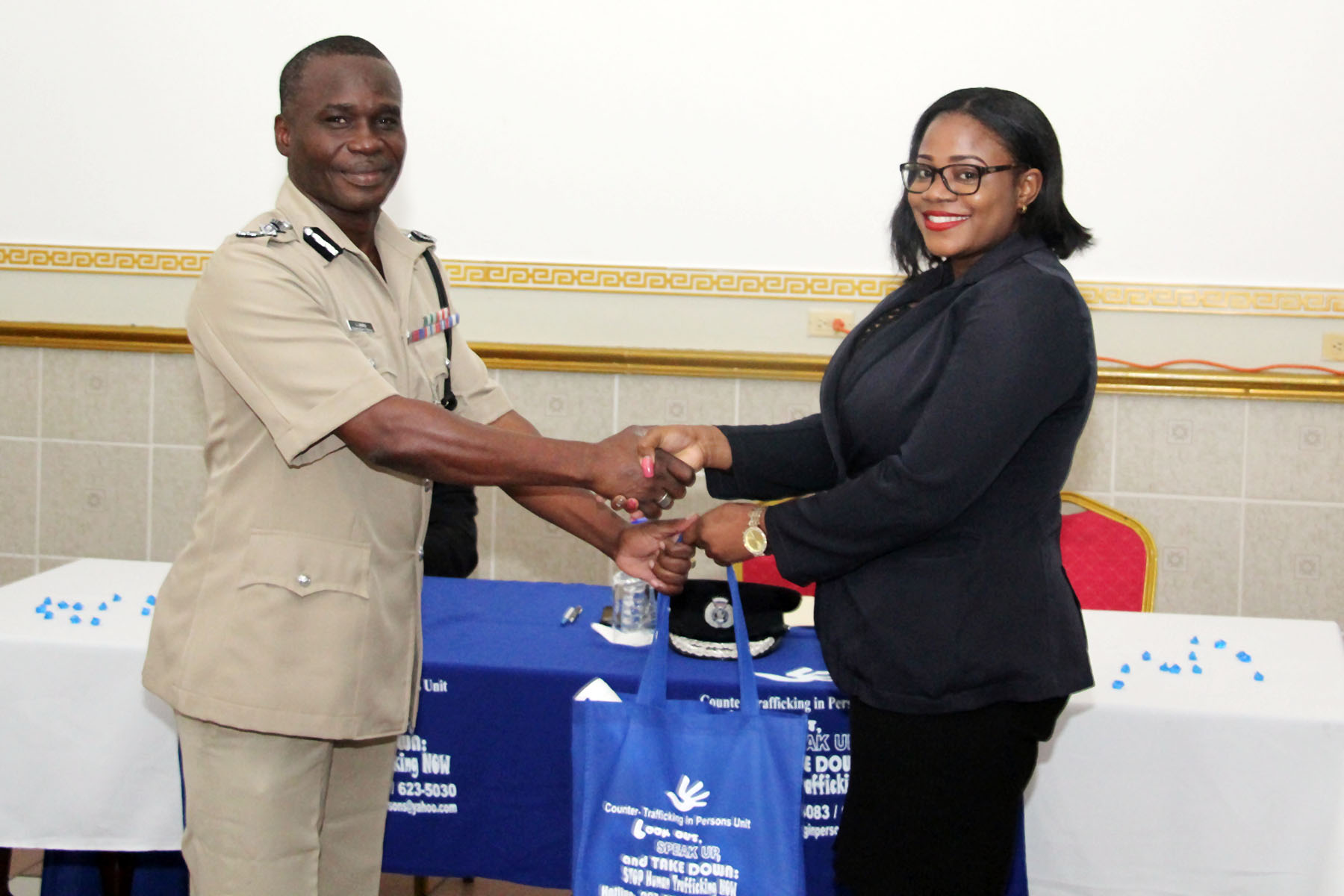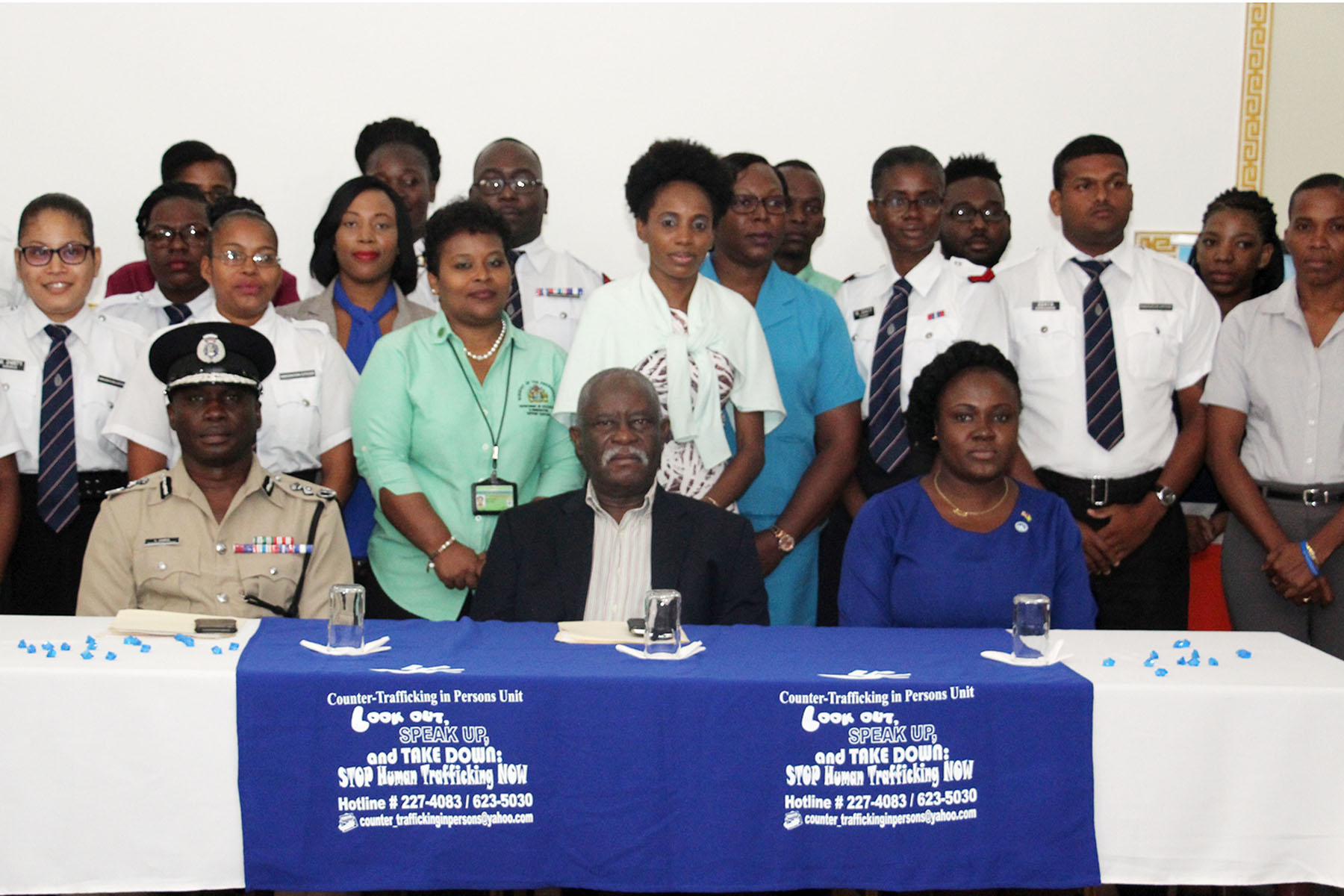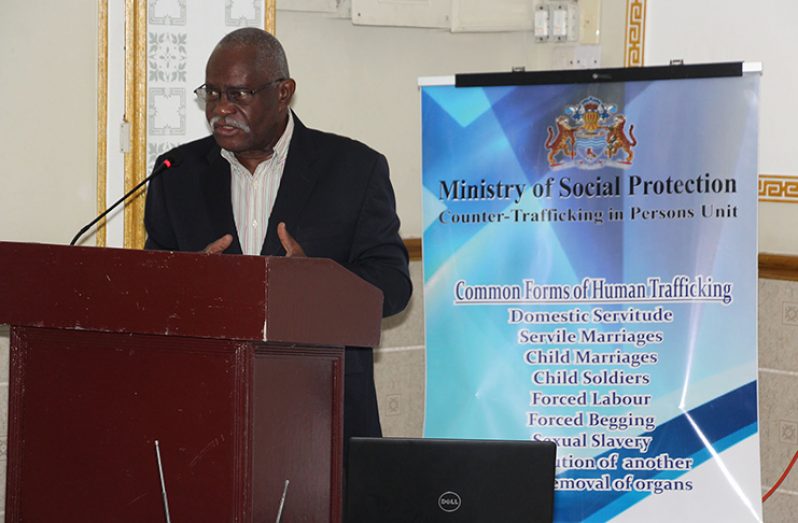GUYANA has earned its place as a Tier 1 country in its struggle to eradicate trafficking in persons, but the battle continues.
Recently, the Counter-Trafficking in persons unit of the Ministry of Social Protection held a training course for more than 20 immigration officers and staff of the Department of Citizenship and Immigration at the Regency Hotel in Brickdam, Georgetown. Speaking at the event, Commissioner of Police Leslie James told the immigration officers and staff that trafficking in persons (TIP) must be deemed a scourge of any developing society and therefore, the efforts being made to have such a training exercise must be seen as an effort to mitigate such scourge.
He stressed the need to highlight the fact that TIP is also referred to as modern day slavery as it engages domestic-type servitude; forced labour; sexual slavery and on a more serious note – the removal of organs and other body parts, to name a few. He, therefore, urged the participants to do extensive reading with regards to TIP so that they can be made more fully aware of the issues relating to this issue in the society.
James stated that TIP is a criminal activity, which is also contemplated by the combatting TIP Act – No. 2:2005. As a result, he expressed gratitude to the two ministers associated with the programme – Minister of Social Protection, Ms. Amna Ally and also the Minister of Citizenship Mr. Winston Felix.
James noted that there are in place ministerial approaches to deal with policies against TIP; the technical aspect, where there are reports, raids, investigations and others operations; also that sub-committees have been put together to deal with the issues.
Further, he stated that there is also training, what is referred to as ‘awareness’ – the re-integration of persons who have been affected by TIP, towards a smooth flow back into society. There is also research at the ministerial level; the victims of TIP are allowed certain social and economic concessions, for example food, shelter, medical supplies and even treatment. A database has also been established, where all aspects of TIP is recorded. James said that the Government of Guyana efforts in combatting TIP is in keeping with the United Nations (UN) protocol, and as a result there is an annual action plan formulated for each fiscal year; noting that the GoG has serious and sustained efforts in this regard.
Clandestine in nature
For his part, Felix stated that he considers the training an important event for the young officers and staff, to become more aware of the international crime of trafficking in persons (TIP). He said that TIP was in Guyana long before people became aware that there was such a crime because the nature of this crime is so clandestine. “It can be occurring in front of you and you wouldn’t recognise it, and that it is why it is so important for us to work together; to collaborate in order to strike a blow against any act of TIP; one organisation cannot do it!
“There is a thin line between people who desire to be prostitutes and people who are forced to do prostitution – people who are trafficked,” Mr. Felix stated.

He noted that years ago the Guyana Police Force
(GPF) would literally go and try to break up situations where it was realised that prostitution and similar behaviour were taking place, but the situation is now quite different. He highlighted the international scenario of people coming from other countries; people who need jobs and might be forced into a labour market that they were not aware of until they get there. This, he noted, is simply because Guyana has been described as a ‘source’ country – a country for which persons can be easily obtained and trafficked. Guyana can also be termed a destination country, where people can be brought here and be trafficked.
“As immigration officers very many circumstances may appear before you which you cannot label as ‘traffic’, and therefore it is important that your record-keeping as immigration officers be topnotch because you will become a source of the investigation whenever it may start.

“My advice to you therefore, is that this training would not give you all the information and that you need to build on the little that is taught here. Training can only wet your appetite, but you must proceed to develop your minds since you are operatives on the ground – immigration and social protection workers,” he stated.
Felix said that the participants must continue in their quest to learn, so that when they are confronted by circumstances they will be able to act wisely; being able to differentiate the various crimes and where necessary take the appropriate initial actions. He emphasised the need for every participant to continue their quest to learn more about what TIP entails – learning more about trafficking and exploitation. He urged them to not just enjoy the programme, but be able to develop themselves as they proceed in their careers, even as they assist the country to fight this unpleasant crime of TIP, which the government would wish to get rid of with the “speed of light”.





.jpg)








